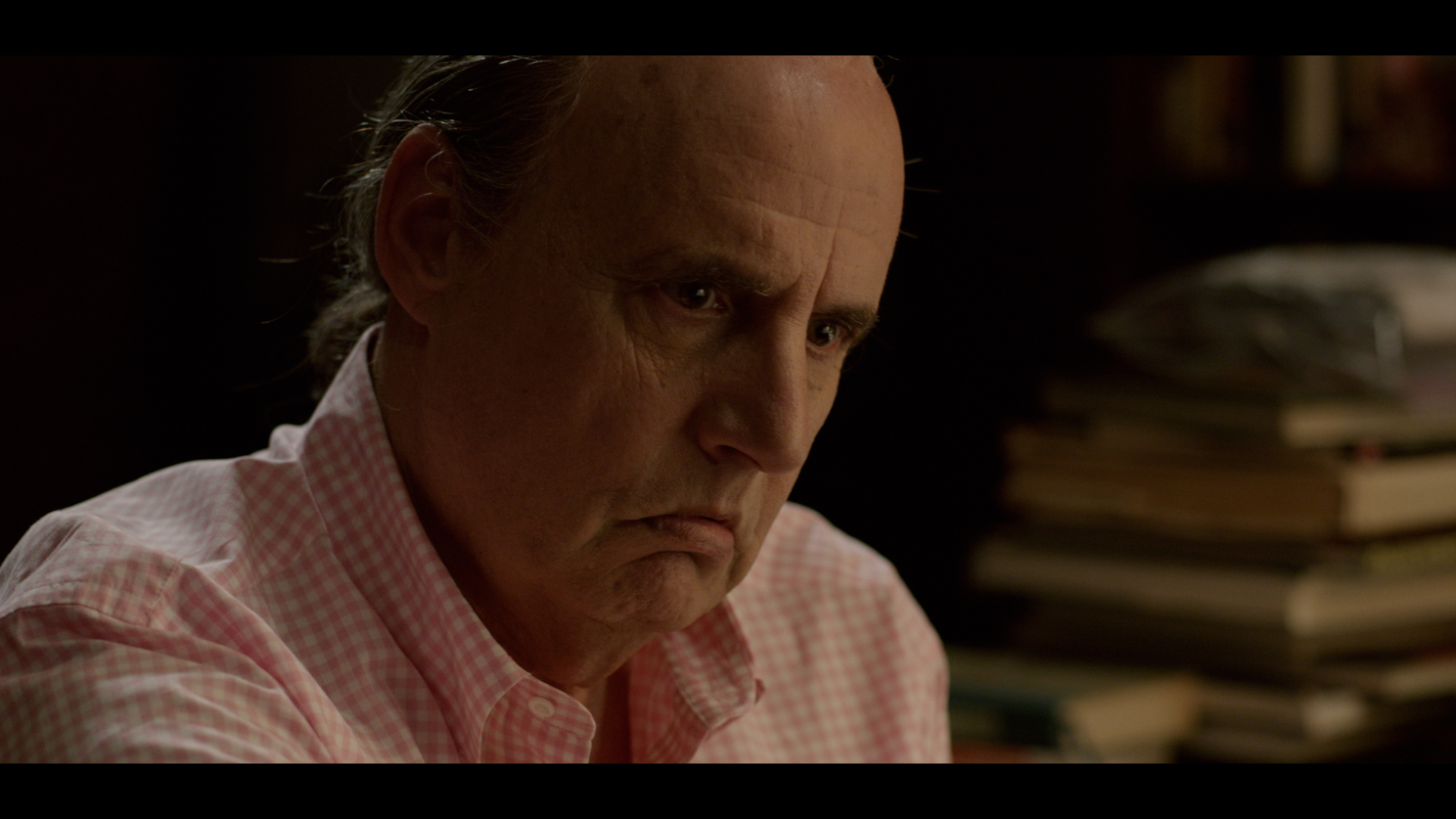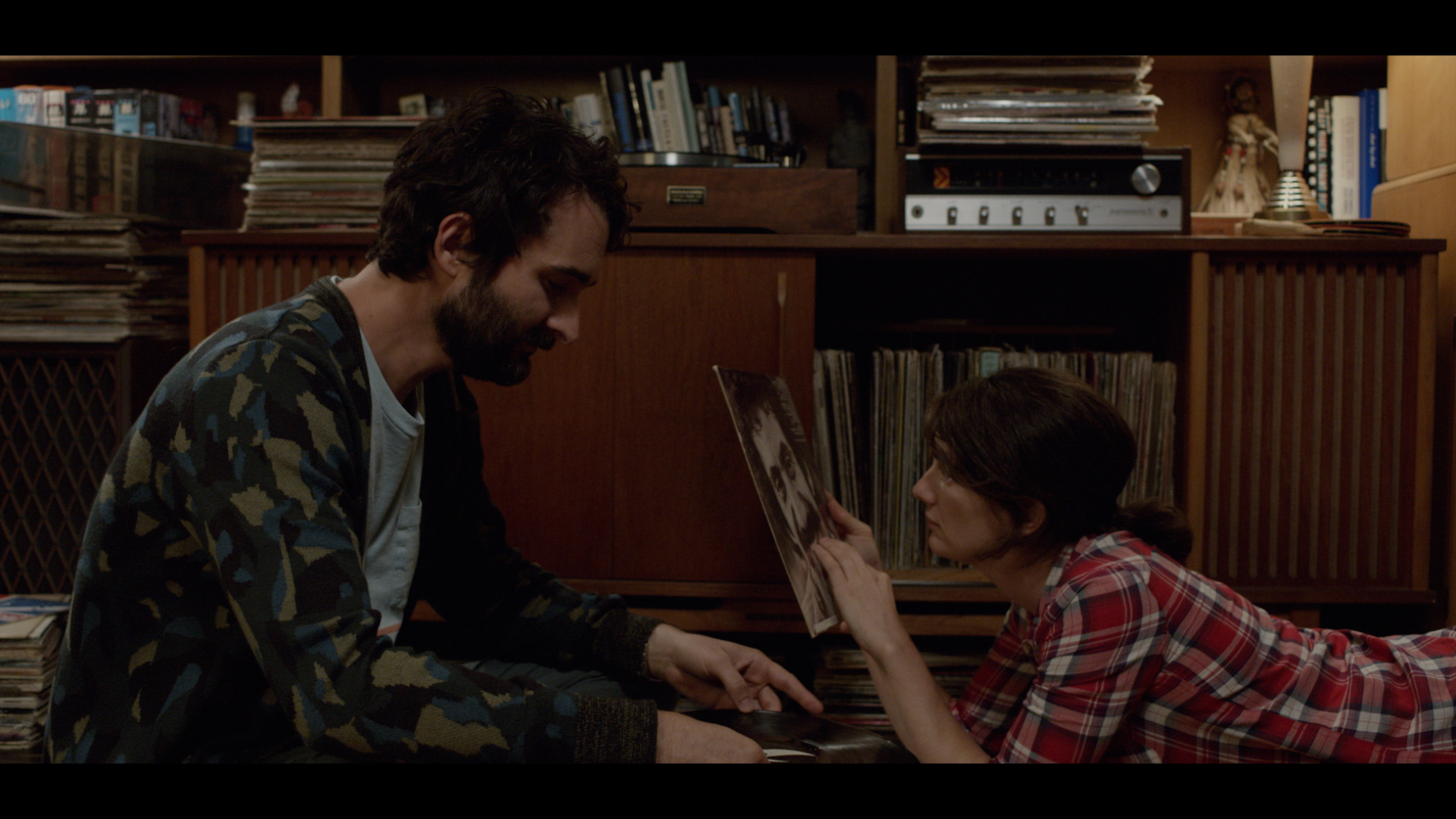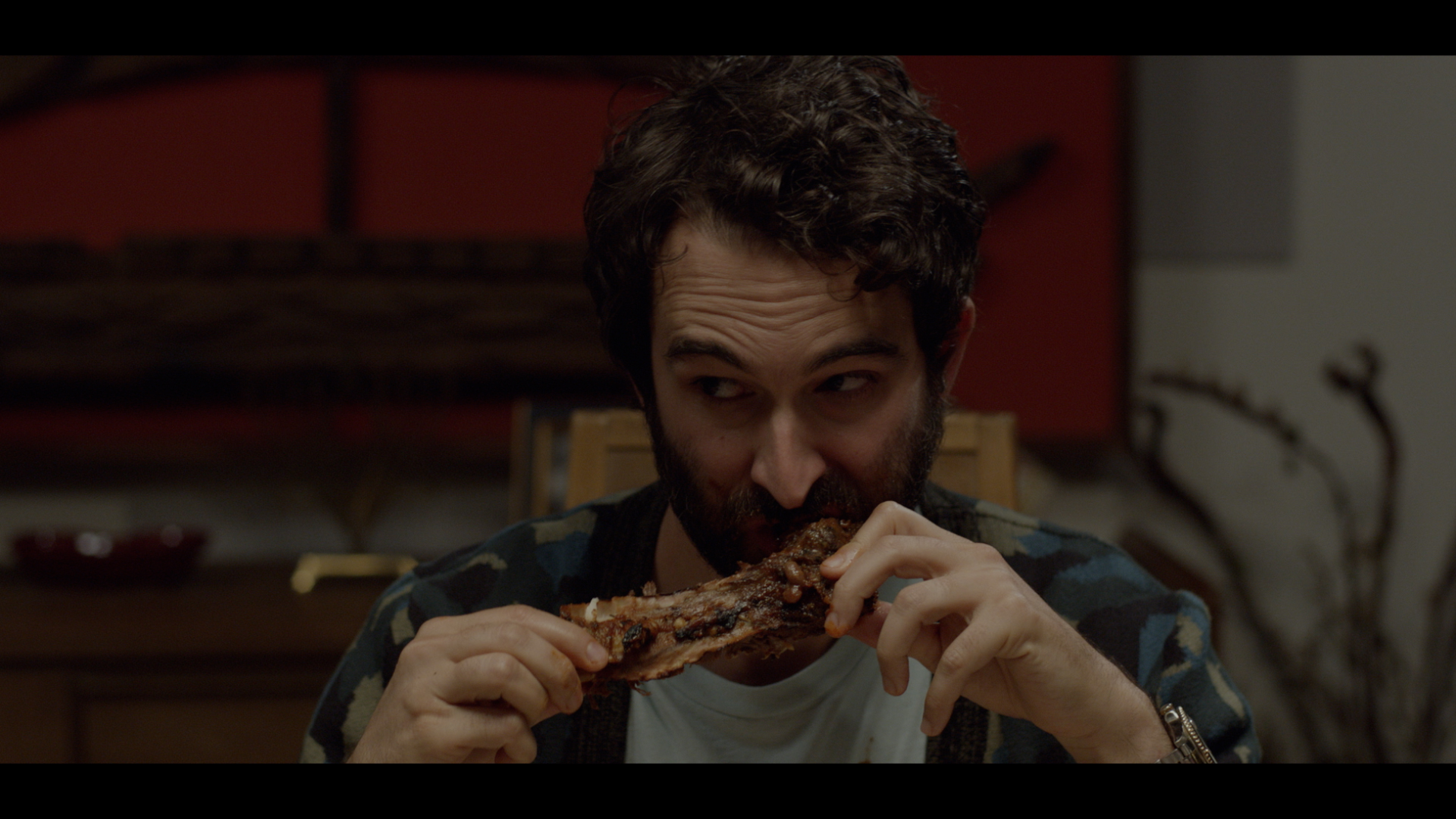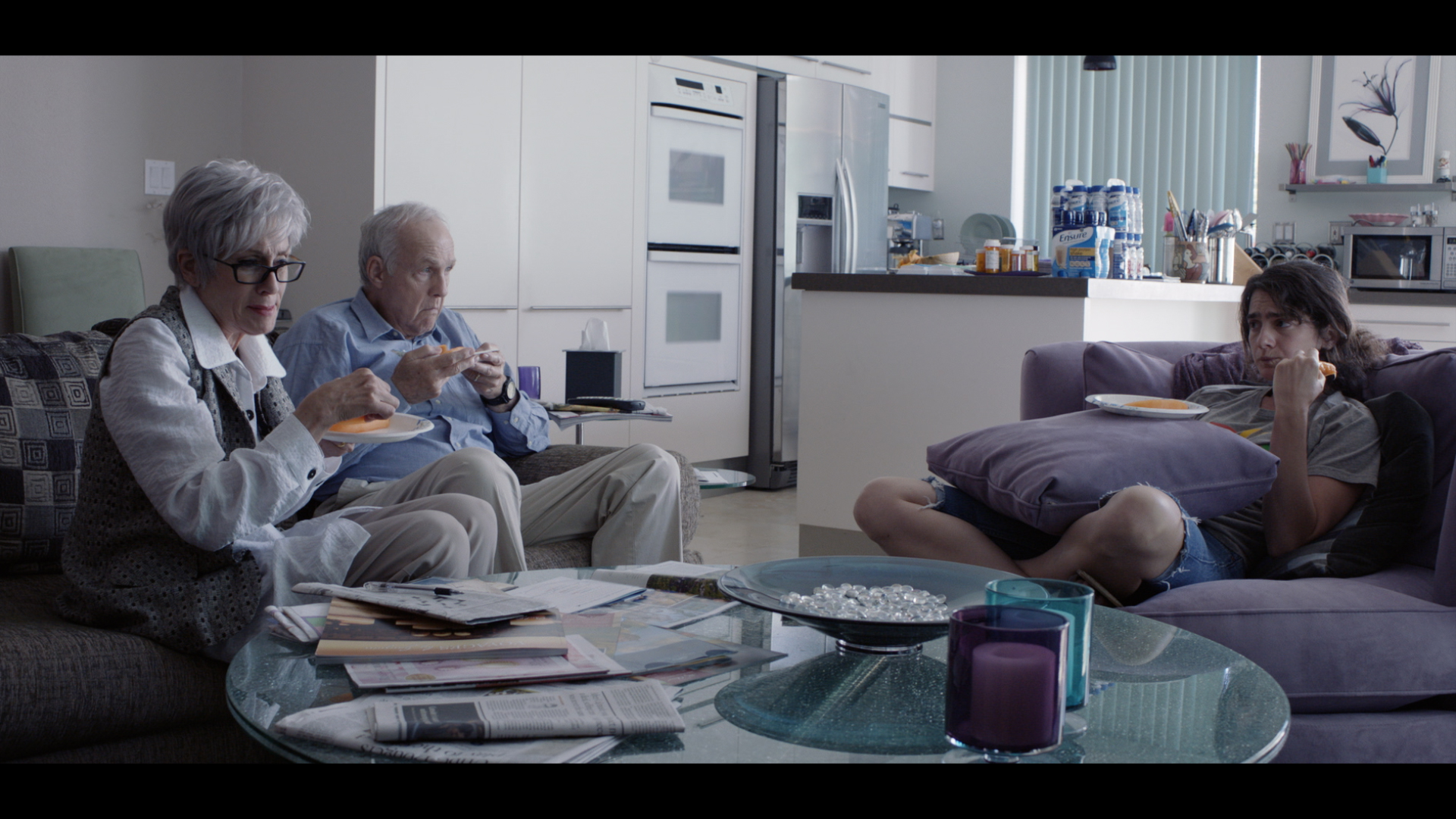There's possibly never been a single episode of TV so talked about as Amazon's new pilot "Transparent."

Jeffrey Tambor stars as the head of a complicated Los Angeles family in the Amazon original.
There are two reasons for this: 1) one episode is all we have -- viewer feedback determines which pilots become full fledged shows. And 2) it's fantastic. (If you haven't seen it yet, you may want to remedy that before reading: spoilers abound.)
Written and directed by Jill Soloway (previously of Six Feet Under), the pilot stars Jeffrey Tambor as a patriarch who -- as the title suggests -- is transitioning into becoming a matriarch. While Tambor's is the performance that'll inevitably get people talking, he's aided by a pitch-perfect surrounding cast. Gaby Hoffmann returns after her great turn in "Louie," this time as the aimless baby of the family. Jay Duplass is a charmer with a selfish streak, and Amy Landecker is a tightly wound perfect-wife-and-mother who may or may not be a lesbian.
HuffPost sat down with Soloway and her cast of adult kids to chat about all things "Transparent," from America's changing attitude toward gender to the infinite potential of internet TV. How this turned into a talk about poop, Bruce Jenner and witchcraft, we cannot say.
The Huffington Post: Hi everybody. How are you?
Gaby Hoffmann: We’re good. We’re all in different, slightly compromised positions.
Jay Duplass: We were all talking about pooping before you got on the phone.
Amy Landecker: It’s true. Jay had huevos rancheros. But Jill didn’t want us to talk about that.
Jill Soloway: It's fine! Are you recording?
HP: I am, but that shouldn’t stop you.
GH: I just want to say, we didn’t all have huevos rancheros. I had a kale blueberry carrot smoothie, and that’s moving through me very quickly.
AL: I had five shots of tequila.
HP: We could do a list of the best ways to poop, according to the "Transparent" cast. (Laughter, but no takers). No, so, the pilot. I think universal opinion is that it’s great. Where are things at with it, Jill?
JS: Just waiting! We have to wait until March. But it seems like it's nothing more than a mandate from where I sit, like America seems to want it. Maybe that’s just my Facebook feed.
HP: It does feel like the timing is perfect. Was that intentional?
JS: The fact that this happens to seem like a real moment for a national discussion about gender is for me just part of the perfection of how it all turned out. It really was never my original intention. I always saw the father’s transition in the show as a metaphor for the way people in families don’t necessarily stay put in the places where we would like them to be. Parents change, kids don’t turn out as parents want kids to. The idea that the father was transitioning felt like something that could really work for all kinds of families. So it’s kind of exciting that Bruce Jenner might be joining us.
HP: Right. I saw that connection made in the BuzzFeed review.
JS: It’s crazy. Us and the Kardashians all dealing with it.
JD: Wait, what’s going on with Bruce Jenner?
HP: There are signs he may be transitioning. He allegedly reduced his Adam’s apple.
GH: So that’s not National Enquirer stuff?
JS: I think it remains to be seen if it’s real or not, but it does feel like there’s a national conversation starting.
AL: And then, Chaz Bono, I think his presence -- I’m probably the only one of this group that watches "Dancing With The Stars" -- but I felt like his journey, especially in the context of a show like that, opened up a discussion in America.
HP: Jill mentioned that all three of you come from...complex families. (Laughter.) Did you bring any personal history into your understanding of your roles?
GH: I don’t know what I’m the hell I’m doing when I’m bringing anything to a role. It’s all unconscious, I think. But there are things about where Ali is that I can definitely relate to. Feeling lost and adrift, and the paralysis or discomfort or whatever you want to call it -- depression -- that comes with that. That place is one that most people, if they’re honest, hit at some point, hopefully early in life.
AL: My sister and I had a lot of experiences that we shared together as kids that made us super tight. My father, he’s a disc jockey, and it would come out publicly that he’s a drug addict and an alcoholic. And then, you also have those experiences that are so private. I feel like that’s one of the easiest things for me to tap into, that idea of a double life. I’m going to be this here and I’m going to be that there. Trying to bring those [personas] together is really moving but also really painful.

Duplass and Hoffmann geek out over a Jim Croce album as brother and sister, Josh and Ali.
HP: Jill, I read that you walked into a party and saw Jay, and you knew he was the one [for the role]. What is it that he embodies?
JD: Yeah, Jill.
JS: Sort of the idealized beardy Jewish love object.
HP: That’s great.
JD: Deep red over here.
JS: I don’t know. It’s kind of a Jesus thing. It’s kind of a Jewy intellectual thing, even though he’s not even Jewish. He’s just got this thing. It’s not just me, everyone all across the country has said this.
GH: Yeah, we can all get on board with that. You just want to tackle him and make out with him -- Jewish, boy, girl, gay, straight.

"Idealized beardy Jewish love object," Jay Duplass.
JS: It’s like an intellectual beautiful male thing. Sorry Jay.
JD: Jesus Christ.
GH: I imagine, Jill, that what you felt when you saw Jay is why you’re so good at what you do. You have like a super antennae for humanity. It’s why we all fell in love with you and why you write such incredible human characters. It’s because you can sense when something is bullshit, and when it’s interesting and real. It was there in your writing, and in your directing and in your home and family and everything about you.
AL: Jill said the other night something, that she was like a witch. And I agree. She has such spooky powers of creating something that is very unusual. I’ve never felt like I knew a group of people for so long in such a short period of time. Judith and Jeffrey -- who aren’t here -- after the table read, they were very vocal that it was one of the most profound experiences they’d ever had.
JS: There was this one day before filming, Mallika, we had this Sunday brunch at my house. The three kids as well as Judith [Light, who plays the family matriarch] and Jeffrey [Tambor], and we immediately started behaving like we were all family. Jeff took off his shoes and sat on the couch and started reading the paper, and we all started moving around together. It was beautiful.
In some ways, I feel like it was idealized. This is work, ultimately, so it doesn’t have the kind of ugly end game of real family, where things go horribly wrong. We all know to be on our best behavior, because this is your possible new job.

Judith Light, as Tambor's flinty ex.
GH: But part of best behavior for us as actors is being able to not be on your best behavior. We’re like, ‘No guys, I’m more fucked up. No no no, I’m so much more disgusting than you.’ We’re bringing our true personalities at every moment and we’re demanding that of each other and that’s what felt like family to me.
AL: There was a moment when I was talking or something, and Jeffrey was very focused on Gaby, and I got into this weird family moment of, ‘My dad likes her better than me.’ Which is touched on in the pilot, and became kind of the way I felt at the dinner table at the barbecue scene. Like, I’m not as funny or cool as my siblings. They’re much more interesting and attractive and real.
JS: It reminds me of this thing that Andrea Arnold said. She’s one of my heroes, and she talks about the fact that she’s a method director. So you live in the world of the art while you’re making it. If anything, that was a very method brunch. We were brunching as if the family was real.
HP: Was that the first time you’d all been together?
JS: It was the first time we’d been alone.
HP: Have any of you had any a-ha moments about, as you say, this national conversation about gender that’s underway?
AL: Having a same sex experience. I’ve done that drunken in college once or twice, but never sober and really present like I was with Gillian [Vigman, in a role as a lesbian ex-girlfriend who resurfaces]. It was amazing how it just felt natural. It sounds like a cliche, I know it does, but it’s like, love is love. It wasn’t until someone reflected on it later and was like, ‘Wow, that’s a really intense scene,’ and I was like, oh yeah. I guess it was. I did not see it that way.
JD: The only thing that’s surprising about the gender issues is that there’s nothing surprising. Everything seems possible.
HP: How much of that sense of possibility came from working outside the network structure?
GH: I think we never stopped commenting, all of us, at how unbelievable the experience was. It felt like a combination of making an independent film, where you have the best people and all the freedom in the world, but funded by a studio. We had everything we could possibly imagine at our disposal to play with, and that is, sadly, incredibly rare. With an independent film you’re always fighting the budget and time and restrictions.
HP: What’s something that was available to you that wouldn’t normally have been?
GH: What that provides us as actors is the sense that we can play and fail and try things to no end. That kind of freedom allows you to discover things that you normally don’t have time for.
JD: When we were shooting one of my scenes, the crew was literally leaving the building, and it was just Jill and Jim [Frohna, a cinematographer] and me and Brett [Paesel, one of Duplass' onscreen lovers] in the room. We were shooting as if there was no limitation whatsoever, as if we would be there all night if we needed to to be. That’s rare, I think, even for independent films or big budget films.
AL: The craziest thing about Amazon and streaming to me is actually what’s going on now. I’m getting, and I know probably all of us are getting, so much instant response. I’ve never experienced that creatively. People share it, and they pass it, and through social media, you’re very aware of the consumption of this piece of art.
HP: I love what you said in Indiewire, Jill, that you no longer have to create something for an old white golfer. But by the same token, you’re depicting a very specific milieu: this sort of aging L.A. hipster world. If this alienates some of the internet -- do you think that’s a concern you’ll have to think about down the line?
JS: I just quickly want to say, I did get some emails from friend after the Indiewire thing came out, saying, ‘My father plays golf and he wants to let you know he loved it.’ Even though I’m not expressly trying to get that older white golf course male demographic, I do actually feel like the show does resonate beyond the Palisades and the Upper West Side.
I think that truth resonates across all boundaries. I don’t see us being the kind of show that will fall prey to people saying, ‘Why isn’t XYZ represented?’ We’re talking about anxiety. We’re talking about family. We’re talking about love.
